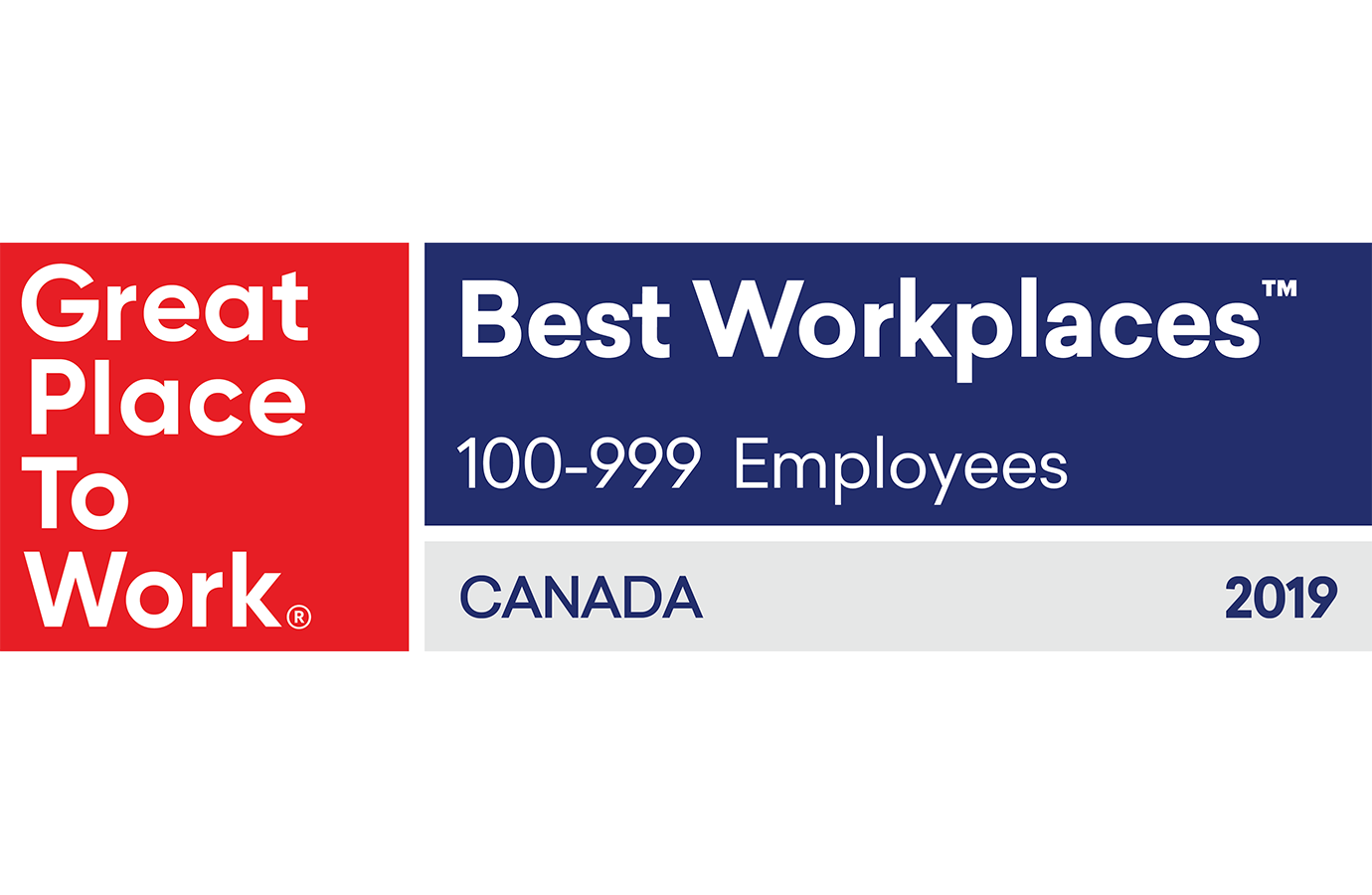As we continue to grow, and embrace our Bold Attitude and Entrepreneurial Spirit, we are thrilled to announce that Optimus SBR has been named one of the 2019 50 Best Workplaces in Canada, for businesses of 100-999 employees.
“We’re so excited to be recognized as one of the Best Workplaces in Canada. Our people have made such strong contributions to developing and nurturing the culture of our firm, and being included on this list reaffirms that our vision of building a different kind of consulting firm is working” shares Kevin Gauci, CEO.
The 2019 Best Workplaces™ in Canada list is compiled by the Great Place to Work® Institute. The competition process is based on two criteria: two-thirds of the total score comes from confidential employee survey results and the remaining one-third comes from an in-depth review of the organization’s culture. This offers a rigorous representation of the organization from an employee perspective, and an overall portrait of the workplace culture. Together, they provide crucial data relative to five trust-building dimensions: credibility, respect, fairness, pride, and camaraderie.
This year’s list received over 400 registrations and over 80,000 employees participated in the 2019 “Best Workplaces™ in Canada” survey, rolling out to impact over 300,000 Canadian employees. We ranked 27th in our inaugural year on the list.
The 2019 list was published as a Special National Report in The Globe and Mail on April 26, 2019, and online at www.greatplacetowork.ca.

Optimus SBR Celebrates 6 Consecutive Wins as 2024 Best Workplaces™ in Professional Services
Our commitment to a people-first approach has been central to being recognized in 2024 for the sixth time as one of the Best Workplaces™ in Professional Services and the key to our overall success.

12 Best Practices to Increase Cross-Team Collaboration and Enhance Organizational Alignment
Enhancing cross-team collaboration drives innovation, optimizes resources, improves overall performance, and ensures every part of your organization works toward the same goals.

Enhancing Your Data Strategy for Success: The Power of Metadata
Metadata goes beyond just aiding in data retrieval. It ensures your data is secure, compliant and, most importantly, understood consistently by everyone in the organization.

Optimizing Language Translation Strategies: Beyond Compliance to Enhanced Operational Efficiency
The introduction of Quebec’s Bill 96 in Canada underscores the necessity for comprehensive translation strategies. Integrating machine translation technologies helps meet regulatory requirements while enhancing translation speed, cost efficiency, and operational effectiveness.

How to Manage Gen Z: 16 Strategies to Engage and Retain Young Talent
These practical strategies lead to a workplace that is better aligned with the values and expectations of Gen Z employees, ensuring that your efforts to attract and retain Gen Z talent are both successful and sustainable.

How to Measure the Success of Learning and Development: 12 Important Metrics to Evaluate
Quantifying the success of L&D training programs can be challenging. Learn about selecting and measuring the right metrics to determine whether your training efforts are truly making an impact.



